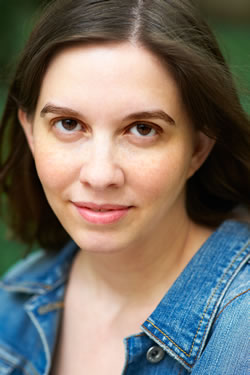|
I used to be afraid of memory. As a young writer, I stayed away from back story in my fiction. Flashbacks always felt clunky and expositional, and I was never sure how to incorporate them into the story in a way that felt seamless.
Now, after many years and countless hours of practice, I have come to love using back story in my writing. I find that flashbacks can vivify and enrich a story, deepening the characters and expanding the world immeasurably.
Here are a few tips for writing back story:
- Let's start with terminology, just in case. Front story is the main arc of present action (the plot). Back story is composed of the flashbacks (the character's memories) that infuse this arc with meaning.
- Whenever possible, change tense to indicate a time shift. If the front story is in the present tense, use the past tense for flashbacks. If the front story is in the past tense ("I went"), use the past perfect for flashbacks ("I had gone").
- Fiction with too little back story can seem weightless, floating on the air like a mirage. By the same token, too much memory can weight the piece down. Keep an eye on this balance during the revision process.
- Front story should be more compelling than back story. The present is what the world is made of. If you're writing a story in which this is not the case—in which the flashbacks are more intriguing than the current moment—then you may want to rethink your structure. (For instance, if the front story consists of the main character looking out a window and reminiscing about her life, while every flashback is vibrant and fascinating, then perhaps the scaffolding of the front story isn't needed.) Back story should never outshine front story.
- In fiction, memories do not have to be triggered by something. It's a technique we all have seen many times: "Emily walks down the street. She passes the coffee shop where she and Charles so often sat, long ago, over cups of tea. She finds herself remembering a particular day in autumn, ten years earlier…" In real life, memories happen this way. A person sees an image, drifts back in time, remembers something connected to that image, then returns to the present. In fiction, however, the before ("Emily feels the intervening years slip away…") and the after ("Emily recalls herself to the present with a jolt") are unnecessary, even distracting. I prefer it when writers simply use a scene break and start their flashbacks without preamble: "Ten years earlier, Emily and Charles were having tea…"
- Front story and back story can contrast in interesting ways. If your front story is tense and suspenseful, you might use calm, quiet flashbacks to create breathing room for your reader. If your front story is slow-moving, you might use action-packed flashbacks to liven up the piece. If your front story describes a desolate, post-apocalyptic world, your back story can offer glimpses into a greener, gentler reality. Front story and back story can clash like steel and flint, producing sparks.
- Avoid creating false tension with your flashbacks. We've all seen this done. The author will drop a hint—"Doug could never forget the terrible thing his parents had done to him"—and then refuse to elaborate. This kind of thing isn't really a flashback; it's a suggestion, a promise of more to come. The reader has to wait and wait to find out what happened. The writer knows something, and the protagonist knows it too, but the information isn't being given to the reader. This is false tension. True tension arises from conflict in the piece, from conversations between the characters, from the arc of the plot. False tension exists between the author and the reader. The reader is aware that information is being withheld arbitrarily. False tension is frustrating rather than compelling.
- The reader should know what the characters know. We should feel close to the characters in every scene. We should believe that we have full access to their minds and memories. This is what back story is for.
- All these rules—like every rule ever made about writing—should be broken when necessary.
|


